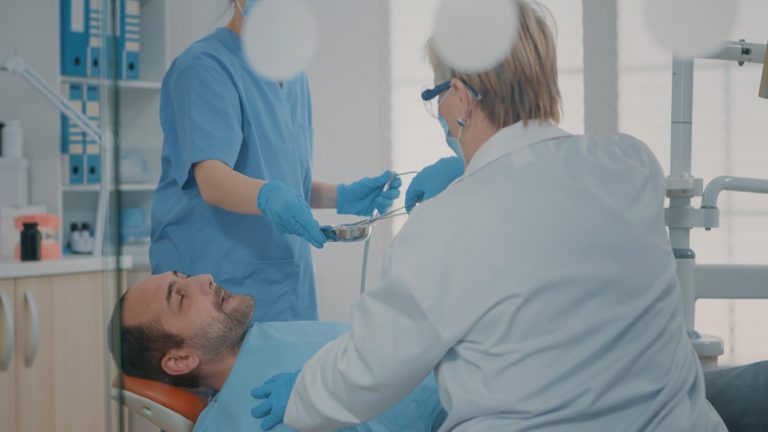Jaw surgery can improve function, relieve pain, and enhance facial balance. While the surgery itself is significant, understanding the recovery process is equally crucial. Here’s what to expect during jaw surgery recovery and tips from experts to make the journey smoother.
The First Few Days After Surgery

Swelling and Discomfort
Swelling typically peaks around the third day after surgery. It may feel uncomfortable, but it’s part of the body’s natural healing process. Applying ice packs during the initial 48 hours can help reduce swelling. Your surgeon may also recommend keeping your head elevated while resting to ease discomfort.
Pain management is essential during the first week. Most patients receive prescribed medications to control pain and inflammation. Taking these as directed can make the recovery period more manageable.
Diet Adjustments
Your jaw will need time to heal, so your surgeon will likely recommend a liquid or soft food diet. Smoothies, soups, and protein shakes provide nutrients without stressing the jaw. Gradually reintroduce solid foods as advised by your healthcare provider.
Limited Jaw Movement
Immediately after surgery, jaw movement will be restricted. This prevents strain on the surgical site. Follow any instructions regarding jaw exercises, which help improve mobility as recovery progresses.
Week One to Two: Settling Into Recovery
Managing Oral Hygiene
Oral hygiene becomes challenging during the initial weeks. You might need to use a special rinse prescribed by your surgeon instead of brushing. It’s essential to keep the surgical site clean to avoid infection.
Following Medication Schedules
Continue taking all prescribed medications, including antibiotics and anti-inflammatory drugs. Consistency with these helps prevent complications and promotes faster healing.
Adjusting to the Splint or Wires
For patients with splints or wires, adjustments can feel uncomfortable. These devices keep your jaw in position during recovery, so it’s important to follow your surgeon’s instructions about care and maintenance.
Week Three to Four: Signs of Progress

Reduced Swelling
Swelling will gradually subside during this phase. While it might not disappear completely, it becomes much less noticeable. Gentle massages and warm compresses can aid in reducing residual swelling.
Increased Jaw Mobility
Your surgeon may recommend starting gentle jaw exercises. These help improve strength and range of motion. Sticking to the recommended routine ensures gradual but steady progress.
Transitioning Your Diet
Soft foods like mashed potatoes, scrambled eggs, and pasta may become part of your diet as your jaw strengthens. Avoid crunchy or hard foods until your surgeon confirms it’s safe.
Long-Term Recovery: What to Anticipate
Full Healing Takes Time
While you may feel better after a few weeks, full recovery can take months. Bones need time to solidify and regain strength. Attend all follow-up appointments so your surgeon can monitor your progress and make adjustments to your care plan.
Sensation Changes
Some patients experience temporary numbness or tingling around the mouth or jaw. These sensations often fade as nerves heal. In some cases, full sensation might take longer to return.
Scar Care
If your surgery involved external incisions, caring for scars is crucial. Use any recommended creams or ointments and protect the area from sun exposure to minimize scarring.
Expert Tips for a Smoother Recovery

Stick to Nutrient-Rich Foods
Nourish your body with protein-rich and nutrient-dense meals. Foods like yogurt, eggs, and blended vegetables support healing and provide energy.
Stay Hydrated
Proper hydration aids recovery and helps with swelling. Sip water or clear fluids throughout the day to stay hydrated without putting strain on your jaw.
Follow Instructions Closely
Your surgeon provides detailed instructions for a reason. Follow all recommendations regarding diet, medication, and physical activity to prevent setbacks.
Prepare for Emotional Challenges
Recovery can feel overwhelming. Limited jaw movement, dietary restrictions, and physical discomfort may affect your mood. Stay positive and lean on friends or family for support.
Keep Communication Open
Report unusual symptoms to your surgeon immediately. Persistent swelling, severe pain, or signs of infection like fever or redness around the surgical site require prompt attention.
Setting Yourself Up for Success
Recovering from jaw surgery is a gradual process that demands patience and care. Swelling, restricted jaw movement, and dietary changes may feel challenging, but they’re temporary. By following expert advice and focusing on your overall well-being, you’ll support your body’s natural healing and move closer to the benefits of the surgery.
Trust the process, stick to your care plan, and take pride in every small milestone along the way. You’ll soon enjoy the full benefits of your improved jaw function and enhanced quality of life.
FAQs
How long should I avoid physical activities after jaw surgery?
Your surgeon will provide specific guidance, but most patients need to avoid strenuous activities for at least four to six weeks. This allows the bones to heal properly without unnecessary strain.
Can I travel during the recovery period?
Traveling, especially by air, may not be advisable immediately after surgery. Pressure changes during flights can impact healing. Consult your surgeon before making travel plans.
Will I need speech therapy after jaw surgery?
Some patients benefit from speech therapy to adjust to changes in jaw alignment. Your surgeon may recommend this if speech difficulties arise during recovery.
How can I manage weight loss during a liquid diet?
Weight loss is common during recovery due to dietary restrictions. To minimize this, incorporate high-calorie, nutrient-dense liquids like protein shakes and meal replacement drinks.
When can I resume wearing dental appliances like retainers?
Dental appliances, such as retainers or aligners, may need to be paused during recovery. Follow your surgeon’s advice on when it’s safe to resume their use.
Is it normal to experience jaw stiffness months after surgery?
Mild stiffness can persist for several months. Consistent jaw exercises as prescribed by your surgeon can help improve mobility over time.

